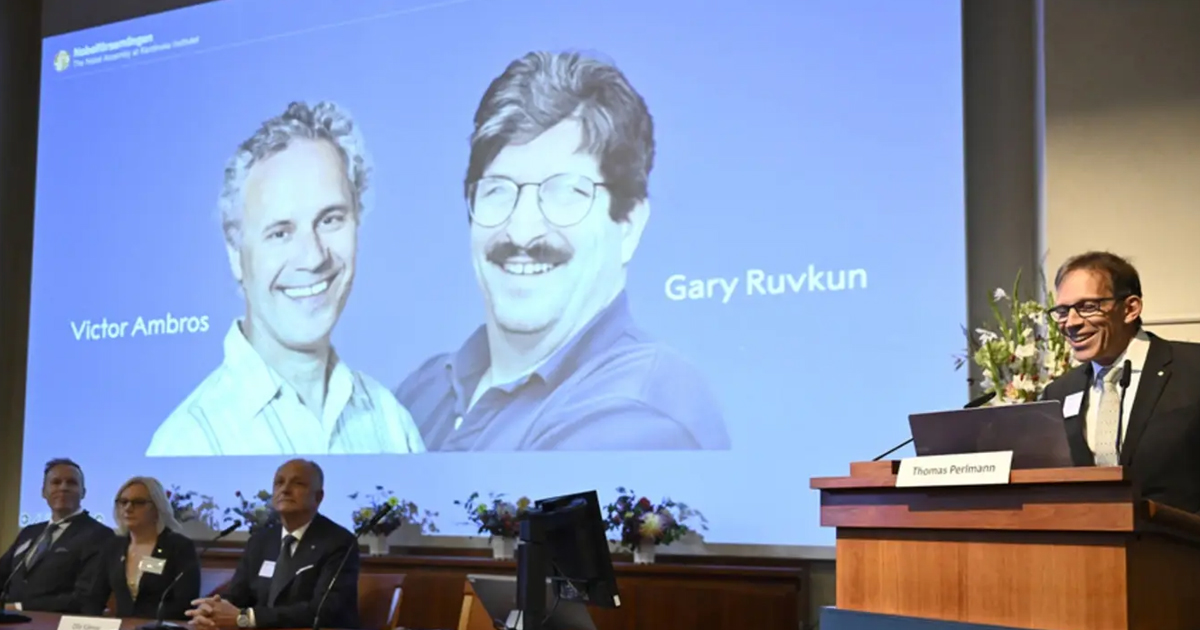Victor Ambros and Gary Ruvkun of US win Medicine Nobel for discovery of microRNA
08 Oct 2024

Victor Ambros, a professor at the Harvard Medical School and Gary Ruvkun, an investigator with Massachusetts General Hospital, jointly won the 2024 Nobel Prize in Physiology or Medicine.
The Nobel Prize Committee said the award is in recognition of their discovery of a new class of microRNAs which play a crucial role in the growth and life of multicellular organisms.
Victor Ambros and Gary Ruvkun tried to observe how different cell types develop. They found that it is gene regulation that allows each cell to follow only the relevant instructions – that only the right set of genes remains active in each cell type.
Genetic information from DNA is sent to messenger RNA (mRNA) through a process called transcription, and the cellular machinery translates the mRNAs so that proteins are made according to the genetic instructions stored in DNA.
Their discoveries helped to explain how cells specialise and develop into different types, such as muscle and nerve cells, even as the cells in an individual have the same set of genes and instructions for life and growth, the committee said.
In the late 1980s, Victor Ambros and Gary Ruvkun were postdoctoral fellows in the laboratory of Robert Horvitz, who won the 2002 Nobel Prize for Medicine along with Sydney Brenner and John Sulston.
It was the study of a small 1 mm long roundworm C elegans in the Horvitz laboratory that led to the discovery of way tissues develop and mature in multicellular organisms.
Despite its small size, C elegans possesses many specialised cell types such as nerve and muscle cells found in larger, more complex animals. Using two mutant strains of the worm, lin-4 and lin-14, Ambros and Ruvkun studied how defects in the genetic programming affects timing of activation of genetic programmes during development and how the timing of activation of different genetic programmes ensured that various cell types develop at the right time.




















